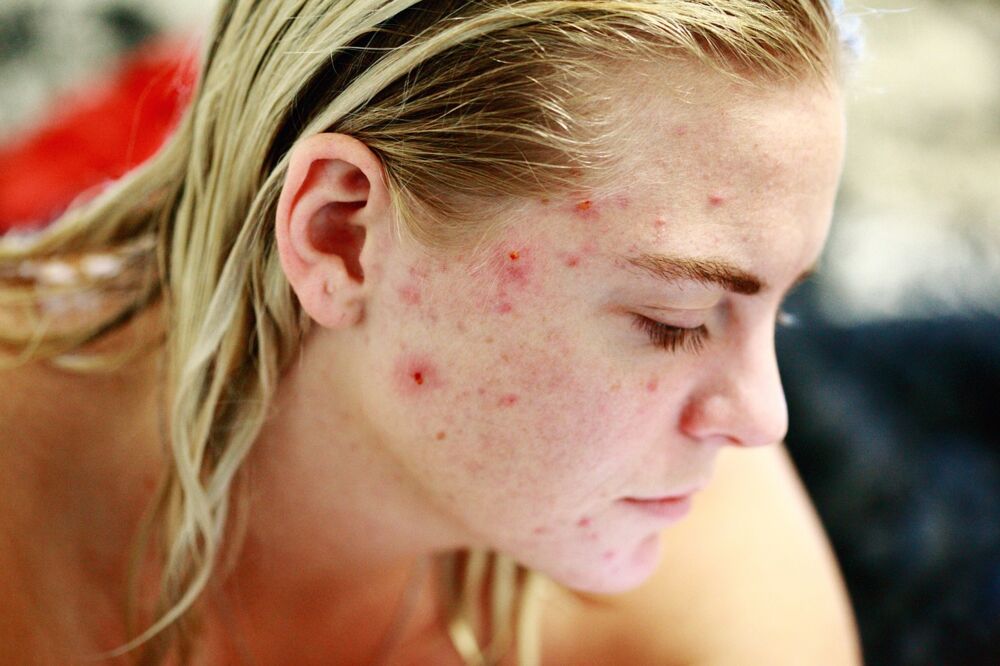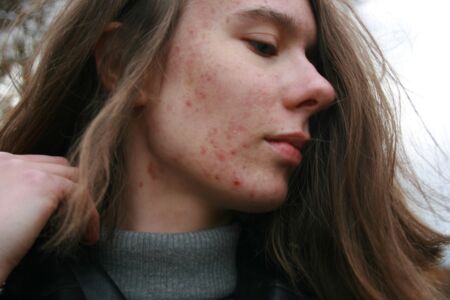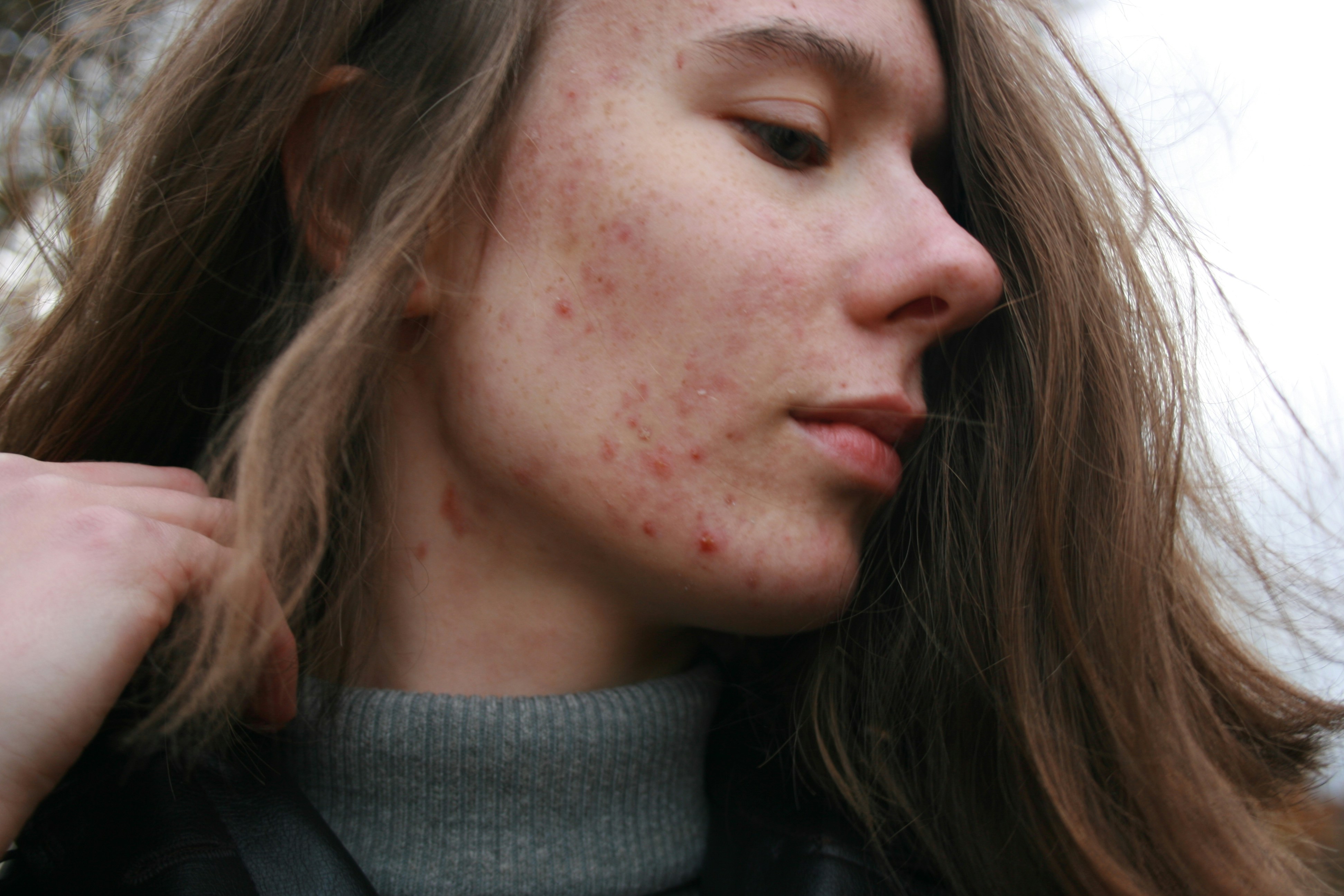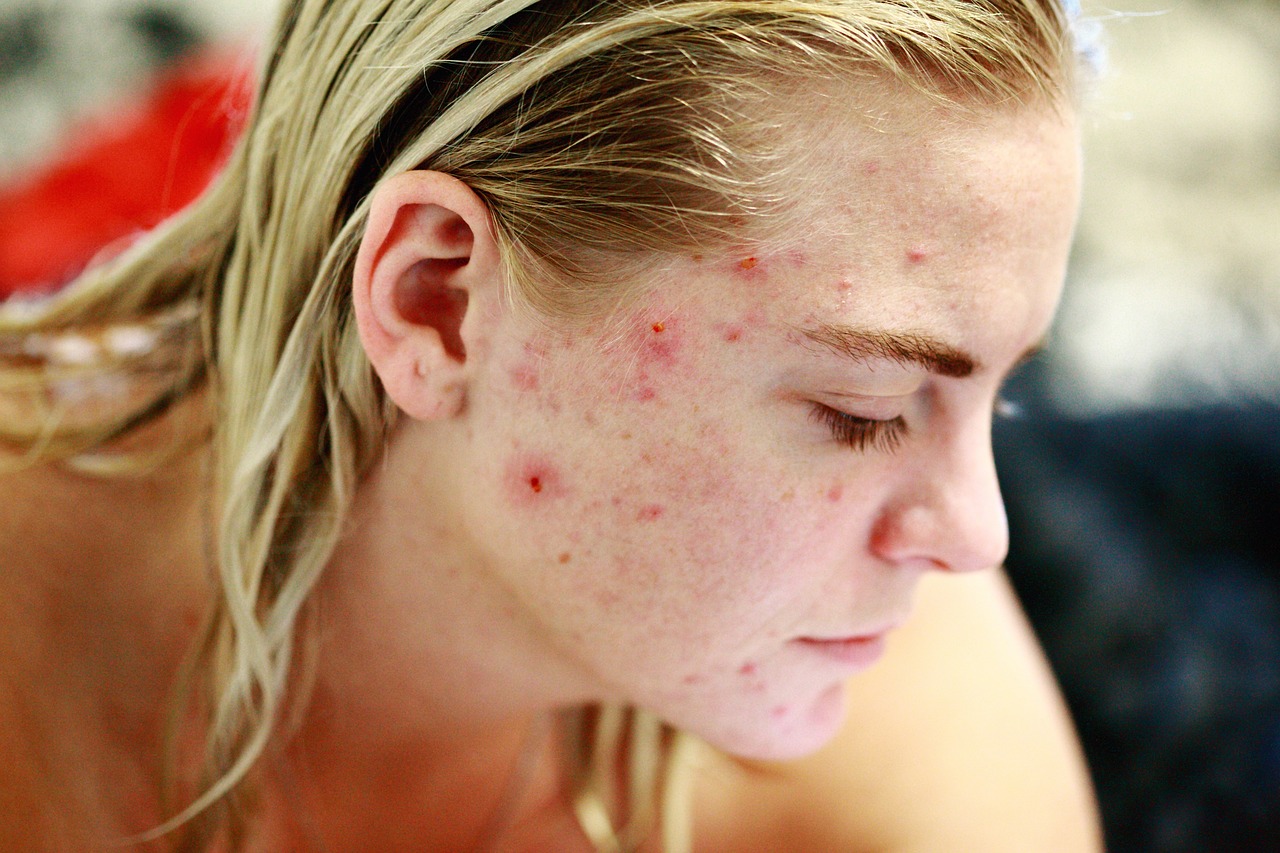Acne
What is Acne
Acne is a worldwide skin condition that affects a lot of people at various times of their life with varying severity, and even different types of acne.
It causes the skin to become different to its natural state, causing spots, oily skin and in some cases skin that is puffy and red which can also be hot and very painful to touch.
Healthy self-care routines as well is eating right and exercising will help with reducing unwanted Acne. Acne is incredibly common and there is a lot of help and support to help you manage it. Acne can appear on various parts of the body, like the back, face and even chest. The face can be more common than other places on the body, but you shouldn't worry if you get acne in other places.
Risks of not treating acne well
When acne is not treated, it can either go away by itself or it can develop into a more serious state.
Acne can become worse for many reasons. For example; popping or squeezing breakouts, sharing makeup and makeup brushes, you eat too many sweet and starchy foods. Even washing your face too much can irritate your skin and aggravate your acne to come back even worse!
Any type of acne can cause scarring. If you have a more severe case of acne and you leave it untreated, it will be more likely that you get lifelong scarring. This can happen when nodules and cysts (caused by infected skin) burst and damage nearby skin. Popping and squeezing breakouts can cause scarring. This is why it is important to leave them and resist the urge to pop them!
If this happens to you, you may feel anxious and uncomfortable with the way your skin has changed which is why it is also important to make sure your mental health and wellbeing is taken care of. There are many websites which can help to make you feel confident in your own skin.
If you are worried about any acne scarring, don't as there are many treatments that you can do!
The way that acne acts on your skin is mostly due to your genes however, there are many ways to lower the risk of your acne breaking out:
- Gently cleanse your skin. Use a gentle cleanser and water, or an oil-free soap substitute. Don't exfoliate your skin. Scrubbing too hard can irritate your skin and make acne worse. Acne is not due to poor washing.
- Avoid picking and ‘cleaning out’ breakouts. By doing this, you are making it worse as it can cause permanent scarring on your skin.
- Avoid oil based products. Most make up, skincare and suncare products are oil based (also known as comedogenic). This can block the pores in your skin and block the hair follicles, ultimately creating a space for acne to develop.
- Use water based (non comedogenic) products. These are much healthier for the skin, as they have a lower chance of blocking your pores.
- Remove makeup and cosmetics before you get into bed as it can mix with oils that have built up on the surface of your skin and will lead to breakouts and clogged pores.
- Sleep. To maintain a healthy mindset and wellbeing, it is important to get enough sleep at night. Science has proven that an adequate amount of sleep improves your body's ability to heal and fight disease, improve mood and mental health. Visit Teen Sleep Hub for advice.
- Diet.
- Observational evidence suggests that there is a possibility that consuming foods which increase your blood sugar, for example carbohydrates, sugars and dairy, has a link to the development of acne.
- However, there is currently no research based evidence that is strong enough to support the idea that diet and acne have a link.
- If you do notice an acne outbreak triggered by eating a specific food, you can try avoiding it to see if it helps.
Sometimes despite doing all the right things, some people are unlucky and have very severe acne through no fault of their own.

How long will it take for my skin to get better?
On average it can take between 1 and 2 weeks for acne pimples to clear up on their own. For severe acne it can take several weeks for acne to go away even with treatment.
Most acne treatments take time to work. You often need to use an acne treatment for up to 3 months before deciding whether or not it has been effective.
Scaring fades over time but the time it takes depends on the type of acne scarring, it may take 12 months or longer.
If your acne is getting worse, affecting your mental health or causing scarring then speak to your GP.

How to get rid of blackheads?
Applying a cream or gel with benzoyl peroxide once or twice a day after washing your face can reduce the number of blackheads on your face. Wash with a mild soap or cleanser and lukewarm water. Very hot or cold water can make acne worse. Don't try to “clean out” blackheads or squeeze spots. This can make them worse and cause permanent scarring.
You can buy benzoyl peroxide (brand name Acnecide®) over the counter from your local community pharmacy. If your skin is getting worse, speak to your GP.
Causes of Acne
- Cosmetics and make up
- Puberty and hormones
- Genes. Acne is inherited, so if your parents suffered from acne you are likely to as well
- Lifestyle Factors such as diet and smoking
- Some medications
Acne is caused by the blockage of tiny holes in the skin known as sebaceous glands which make sebum (oil). Bacteria found on the skin surface mixes and contaminates the plugged glands causing papules, pustules, nodules or cysts which are all different types of acne.
how can I treat acne myself?
Follow the advice above:
- Gently cleanse your skin
- Avoid picking
- Avoid oil based products
- Get a good nights sleep
- Eat a healthy diet
Speak to your local community pharmacist about acne treatments you can buy over the counter such as benzoyl peroxide. If your acne is not improving, getting worse, causing scarring or affecting your mental health then speak to your GP.
Where to get the advice and support?
Hertfordshire: Contact your local GP
west Essex: Contact your local GP
National support: NHS Choices provides comprehensive health advice - Acne - Treatment - NHS (www.nhs.uk)
Acne Support - Home - acne support
British skin foundation - Acne – British Skin Foundation




